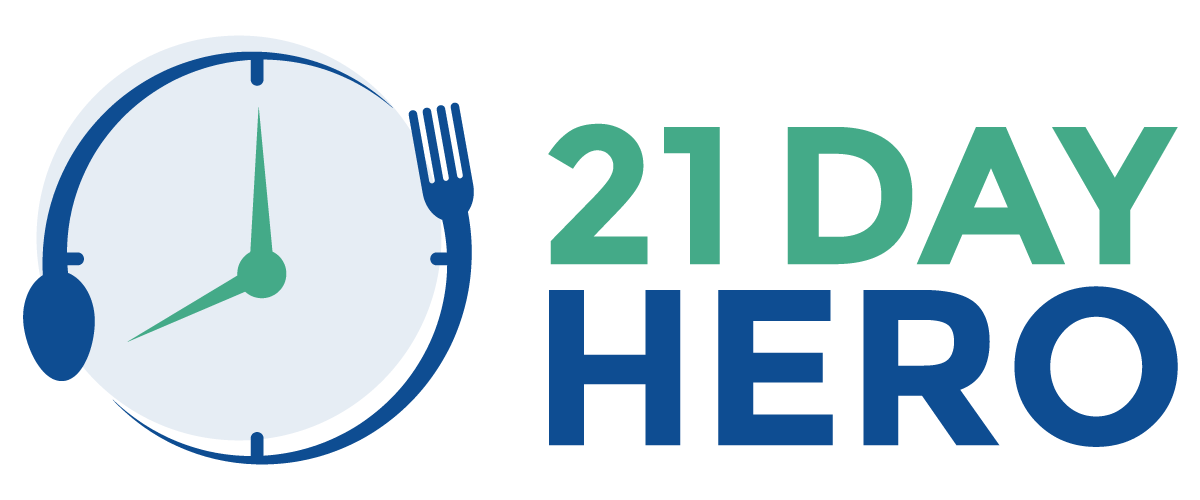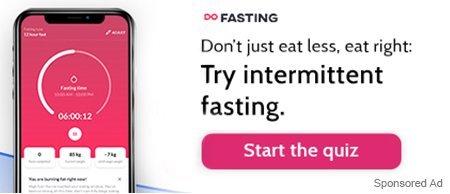Benefits of Vegan Intermittent Fasting | Who can follow Vegan Intermittent Fasting | 10 Tips For Vegan Intermittent Fasting | Risks of Vegan Intermittent Fasting
Intermittent fasting is all about the pattern of eating. It’s a simple diet regime that anyone can follow. It doesn’t matter whether you are a vegan or not; it works the same for all. However, to follow vegan intermittent fasting you may have to consider a few factors.
If you are vegan, while following intermittent fasting, you will have to plan your diet well. With a strict plant-based diet, it becomes essential to track your nutrition status. With a well-planned meal and the right guidance, you can successfully follow vegan intermittent fasting. This article provides you a complete guide and tips to follow vegan intermittent fasting.
Vegan Intermittent Fasting
As mentioned earlier, intermittent fasting can be paired up with any type of diet or lifestyle. When you consider intermittent fasting for weight loss, hormonal imbalance, or to prevent chronic diseases, it is recommended to avoid consuming high-calorie food.
Vegan is a lifestyle choice more than a diet. Veganism can be defined as a lifestyle practice that excludes all forms of animal exploitation and cruelty. Veganism helps to improve the quality of life. Vegan diets have positive effects on weight loss and developing chronic diseases.
Benefits of Vegan Intermittent Fasting
As we all know, both intermittent fasting and a vegan lifestyle have numerous health benefits. Combining both of them can amplify these benefits. Studies have confirmed that individuals consuming a plant-based diet can have lower BMI when compared with people consuming animal-based diets. A vegan diet was found more effective for weight loss and for obesity management.
A study indicated that fasting followed by a vegetarian diet helps patients with rheumatoid arthritis (RA). Many experts suggest that a vegan diet or plant-based diet has significantly reduced levels of body mass index, total cholesterol, LDL cholesterol, and glucose levels. Following a strict vegan diet in intermittent fasting can be effective for weight loss and may reduce the risk of chronic diseases.
To know in detail about the benefits of intermittent fasting, read 8 Benefits Of Intermittent Fasting: A Complete List.

Vegan Intermittent Fasting: Who Can Follow?
1. Vegans having weight loss goals: Vegan intermittent fasting is a great way to lose weight and tone your body.
A vegan diet has been linked to;
- reduced caloric density
- improved gut microbiome
- increased insulin sensitivity
- better weight management
Studies say that plant-based diets carry the risk of nutritional deficiencies. However, when planned well, they can be appropriate for all age groups.
2. If you want to improve your performance at the gym: Intermittent fasting can boost growth hormones and improve your performance training.
3. If you want to follow healthy eating: When you choose plant-based intermittent fasting; you will have to plan your meals to follow this fasting routine. You will make conscious food choices, and this helps you to develop healthy eating habits.
Vegan Intermittent Fasting: Who Should Not Try
- Pregnant or breastfeeding mothers: Experts recommend not to experiment with diet while you are pregnant or breastfeeding. You should consult your doctor before experimenting with any new diet.
- Diabetic patients: Generally fasting brings variations in your blood glucose levels. To follow vegan intermittent fasting during diabetes, you need the right guidance and your doctor’s approval.
- If you have any other medical condition. If you have a history of any chronic disease or eating disorder, intermittent fasting is not recommended.

10 Tips To Do Vegan Intermittent Fasting the Right Way
The benefits of intermittent fasting depend entirely on the food you eat and your physical activities. Hence, it is essential to choose healthy and nutritional foods in your eating window.
In vegan intermittent fasting, choose the foods that are filling and do not make you hungry for long hours. It is believed that plant-based foods get digested easily and aids in weight loss.
Choose foods that are rich in proteins, fiber, and water, so that they can keep you satiated during long hours of fasting. Here are some more tips to follow to make your vegan intermittent fasting successful;
1. Drink Enough Water
Water is essential for all your body processes; hence it is very important to keep yourself hydrated. Drinking more water makes you feel less hungry. You can also try tea, black coffee, and cucumber-infused water and a few other fasting-friendly drinks during your fasting hours.
Experts recommend you drink a minimum of 8 cups of water per day; this avoids dehydration, promotes your blood flow and muscle strength.
2. Add Whole Grains to Your Diet
Including whole grains in your meals is the best option to keep yourself full for a longer period. Whole grains take time to digest and hence keep you full.
Try including whole grains like oatmeal, millet, quinoa, and brown rice to your diet. Oats are rich in insoluble fiber and low in calories. You can also add some fruits or nuts to make it nutrient-rich and filling. Try different recipes like millet rolls, millet poori, buckwheat poori, ragi malt, etc.
3. Vegetables are Essential
Vegetables are an integral part of vegan intermittent fasting. As you completely depend on plant foods, you should increase iron and calcium-rich veggies such as leafy greens, spinach, kale, mustard greens, and broccoli.
You can break your fast with broccoli soup which is rich in fiber. It is easy to digest and makes you feel full. You can include lots of non-starchy veggies such as carrot, beans, cucumber, which are low in calories and high in fiber. You can also choose a few starchy veggies like corn and pea.
Research has shown leafy green vegetables are linked to reduced risk of heart diseases, type 2 diabetes, cancer, and more. Veggies like carrots, beetroots are rich in antioxidant properties. With all these health benefits, veggies in your vegan intermittent fasting improve health.
4. Eat All Types of Fruits
Fruits are rich in nutrients, vitamins, minerals, and phytochemicals, etc. All fruits (in moderation) are good; hence you can include all available seasonal fruits in your diet. Fruits like berries, citrus fruits, and low-calorie tropical fruits can keep you full for long.
Avocado contains fiber, phytochemicals, mannoheptulose, and MUFAs, that help you prevent weight gain and the risk of obesity. Studies also suggest avocado can improve your satiety. You can include a fruit bowl mixed with berries, avocado, banana, and apples in your everyday diet.
5. Include Legumes
Legumes are low-calorie carbs and are a good source of energy. Including legumes in your diet provides carbs, proteins, and vitamins. Legumes make you feel full during the fasting hours. You can choose black beans, peas, lentils, and chickpeas.

6. Nuts can Improve Your Health
You can include assorted nuts and seeds in your vegan intermittent fasting. They have good fats and are linked to reduced cardiovascular diseases, type 2 diabetes, and mortality.
7. Choline Rich Foods Enhances Your Performance
Choline is a vital nutrient for the liver, brain, and nervous system. A minimal amount of it is produced in our bodies. Hence, it is essential to include it in our diet. Choline is found in a variety of fruits, legumes, whole grains, and nuts. It is present in large amounts in soymilk, cauliflower, broccoli, and quinoa.
If you are an athlete, you must increase the amount of choline nutrient intake as it enhances your performance during your workouts and improves your stamina. Choline helps in the fast recovery of muscles as well.
8. Include Calcium-Rich Foods
Calcium is a must to maintain healthy bones and teeth. Since in a vegan diet you avoid dairy products, you may be more prone to calcium deficiency. Hence it’s essential to include calcium-rich foods such as:
- Green, leafy veggies like cabbage, broccoli, okra
- Fortified soy, rice, and oat drink
- Calcium-set tofu
- Pulses
- Flax seeds
- Sesame seeds and pulses
- Dry fruits like raisins, figs, and dried apricots
9. Look for Iron-Rich Food Sources
Iron is essential for red blood cell production. Vegans can get enough iron from plant-based foods, and it also gets absorbed easily by our body.
Good sources of iron include;
- Pulses
- Whole Wheat bread
- Cereals fortified with iron
- Nuts
- Dry fruits like apricots and figs
10. Consider Vitamin supplements
Vitamin B12 is found only in animal-based foods. Though many plant foods are fortified with vitamin B12, it’s still recommended to take vitamin B12 supplements. Consult your doctor and take a prescribed multivitamin.
Need help in planning your vegan intermittent fasting meals? Get your vegan meal plan prepared in collaboration with a registered dietitian here. Detailed recipes with a weekly shopping list can make your vegan intermittent fasting more convenient and easy to follow.
Risks of Vegan Intermittent Fasting
A vegan diet offers you many health benefits. But while following a strict plant-based diet, you might be at risk of nutrient deficiency. Vegans generally are more prone to experience nutritional deficiency of iron, zinc, calcium, vitamin B12, and vitamin D. This deficiency can affect your digestion, bone growth, and brain health. Also, a plant-based diet requires less time to digest; hence you may feel hungry more often during your vegan intermittent fasting.
Final words
When I personally go on vegan diets, remember you need to supplement, since you are not getting the vitamins you need and can get from meat, so be sure to fill the void this way. But you can feel great while going vegan!
Vegan intermittent fasting has many benefits when you plan your meals well. However, with the right foods and a good amount of physical activity, you can achieve your desired benefits from this diet.
How to do vegan intermittent fasting the easy way? Get a nutritionist-approved meal plan HERE.











